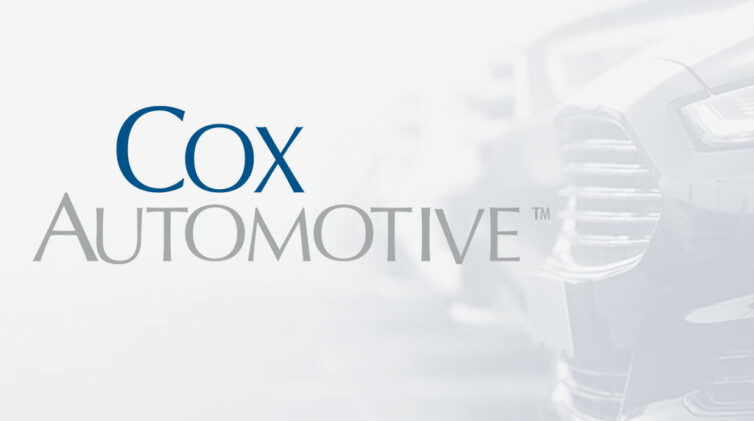THE Motor Industry Services unit of Pitcher Partners is predicting that 2024 will be another record year for vehicle sales, suggesting that buyers will stump up for more than 1.25 million cars.
Last year Australians bought a record 1.2 million vehicles when retail buyers finally were able to take delivery of the cars that were stalled in long order pipelines.
The difference this year is, Pitcher Partners is projecting that as the business and government players refresh their fleets on the back of renewed availability of stock, the sales focus will move from the higher-margin retail market to the business, government and rental sectors where margins are thinner.
Pitcher Partners said: “Although order banks peaked in 2023, we believe order banks will still be strong in 2024. However, with macroeconomic issues looming, increased interest rates and cost-of-living pressures, the deliveries will flow towards fleets (government, rental and business) and retail sales will slow or drop in 2024.
“When compared to 2022, sales volumes increased in 2023 but it is evident that units are now being supplied to lower-margin customers with business sales up 18.7 per cent, rental up 10.8 per cent and government up 24.3 per cent while retail was only up 8.6 per cent.”
Pitcher Partners once again raised the issue of the market gap of “missing sales” – the cars that were not sold during the shortages through COVID-19 and it predicted the gap would not be filled until 2028.
“There is a visible gap between the supply and demand which needs to be filled over the next few years. We have calculated that if supply outstripped demand by 10 per cent (conservative approach) from now on, it would take until Q1 CY28 for the lost units from COVID-19 to enter the Australian car parc.
“Dealerships see this excess demand as an opportunity, with Eagers Automotive Group citing this in their annual report as an opportunity for them to take advantage, despite record new deliveries in 2023,” the report said.
The predictions were contained in Pitcher Partners’ third edition of the annual Australian Listed Dealer Comparison report, just released. By studying the detailed key financials reported by the three big listed dealer groups across hundreds of dealerships selling all brands, the report opens up a unique window on the health of the auto retail trade as a whole.
Referring to the listed groups, the report said: “The listed groups Eagers Automotive (ASX:APE), Autosport’s Group (ASX:ASG) and Peter Warren Automotive Holdings (ASX:PWR) sales have all benefited from increased stock levels with calendar year revenues up 15.3 per cent for APE, 30.8 per cent for ASG and 18.4 per cent for PWR. 
“However, increasing macro-economic-pressures, stubbornly high inflation and interest rates have squeezed the groups’ net income margins.
“New vehicles sales in the calendar year 2023 (CY23) were 1,174,876 (excluding heavy commercial) or 12.7 per cent higher in comparison to CY22 (per VFacts for the Australian market). This is an increase of 132,172 vehicles year on year.
“It is evident that the gap between pre and post COVID volume levels has closed, in fact, CY23 was the highest volume year on record in Australia.
“We are forecasting unit volume to remain above the 1.1m units and climb to over 1.2m units this year as order banks clear out and fleet operators refresh their vehicle fleets.
“The increased volume available in the market and strong acquisitions made throughout the period has proven a key growth factor for all group entities which have all achieved double-digit revenue growth on a per corresponding period (pcp) basis.
“However, interest rates have been on the rise to curb rising inflation, and these are expected to steady but remain high in the coming 2024 calendar year.
Pitcher Partners said: “We have seen all public dealer groups experience increases in their finance costs including interest on loans and interest on floorplan. Inflation and interest rates have also affected the consumer.
“We are seeing consumers making decisions to reduce discretionary spending which has negatively affected the demand for new cars going forward.
“Improvement in supply chains, along with continued large order banks should result in continued growth of the top-line, however, will this be enough to combat increasing inflation, the prevailing macroeconomic environment and interest rates?
“Dealerships will need to continue to focus on cost management over the coming period, to protect and translate their top line revenue gains into profitability,” the report said.
Pitcher Partners analysis – How the big groups fared:
Total Revenue
18.3 per cent ↑ – Revenue increased to $A14.78bn across all listed entities. This was primarily driven by record car sales in 2023 and dealership acquisitions in CY23.
Gross Margin
18.6 per cent ↓ – Gross Margin has decreased by 0.8 per cent YOY (19.8 per cent to 18.6 per cent) despite Total Gross Profit increasing by 13.3 per cent YOY.
EBITDA
15.0 per cent ↑ – EBITDA increased by $A113.72m YOY demonstrating efficiency in the market and high profitability. However, EBITDA margin decreased by 0.2 per cent.
EBIT
14.8 per cent ↑ – EBIT increased by $A104.67m across all listed entities combined. However, EBIT margin decreased by 0.2 per cent.
NPAT as per cent of Total Revenue
0.8 per cent ↓ – NPAT as a per cent of Total Revenue decreased YOY, decreasing to 2.7 per cent on average. This is directly attributable to increases in floor plan interest.
Average Inventory
67.5 days ↑ – Inventory Days increased by 11.6 per cent YOY as a result of supply constraints easing.
Average Cash Conversion Cycle
68.3 days ↑ – Cash conversion increased by 9.6 days due increase in inventory balances translating into lower inventory turnover, increasing inventory days.
Total Debt to Equity
178 per cent ↑ – Total Debt to Equity increased by 22.2 per cent YOY due to increases in floorplan and slight reductions in earnings.
Interest Coverage Ratio
3.7 x ↓ – Interest coverage decreased from 5.8 x on the back of increased floorplan costs and declining profitability.
Return on Equity
15.7 per cent ↓ – Return on Equity decreased by 16.9 per cent YOY on average mainly due to a decrease in earnings.
Total Enterprise Value to EBIT
10.8x ↑ – The weighted average total EV to EBIT is 10.8x compared to 10.3x at December 22.
Price to Earnings per Share
11.1x ↑ – The share price to earnings per share (before extraordinary items) is 11.1x compared to 8.8x as of December 2022.
Summary
The good:
- Revenue has increased across the board, with dealerships having increased supply and market demand increasing overall in 2023
- Parts and Services divisions have improved across all groups over the period
- Increasing supply has not made significant dents in the order banks as all groups having only minor decreases with order writing continuing to be strong. However, Pitcher Partners expect this to drop further in 2024
- Strong growth from acquisitions for all three groups with a view to continue an acquisitive phase to further consolidate the market.
The not so good:
- Gross margins have decreased across all three groups. APE decreased by 0.5%, ASG by 1.1 per cent and PWR by 1.9 per cent as supply returns and COVID-19 margins roll back toward historical averages
- Net Income margins have decreased across all three groups. However, the EBIT margin remained largely consistent for APE and ASG highlighting the impact of the interest rate increases
- Inventory levels are increasing impacting turnover and days outstanding as dealers struggle with significant discrepancies in supply between brands.
The Interesting:
The groups are utilising their strong balance sheet position and large cash pools to take advantage of prevailing market conditions and further consolidate the retail motor industry. The consolidation trend is looking to find avenues to gain cost efficiencies in an industry that will continue to experience margin compression post COVID.
Many of the groups this year have given up some of their leases and purchased property to build their property portfolios as a hedge against external economic factors
By John Mellor












 Read More: Related articles
Read More: Related articles

